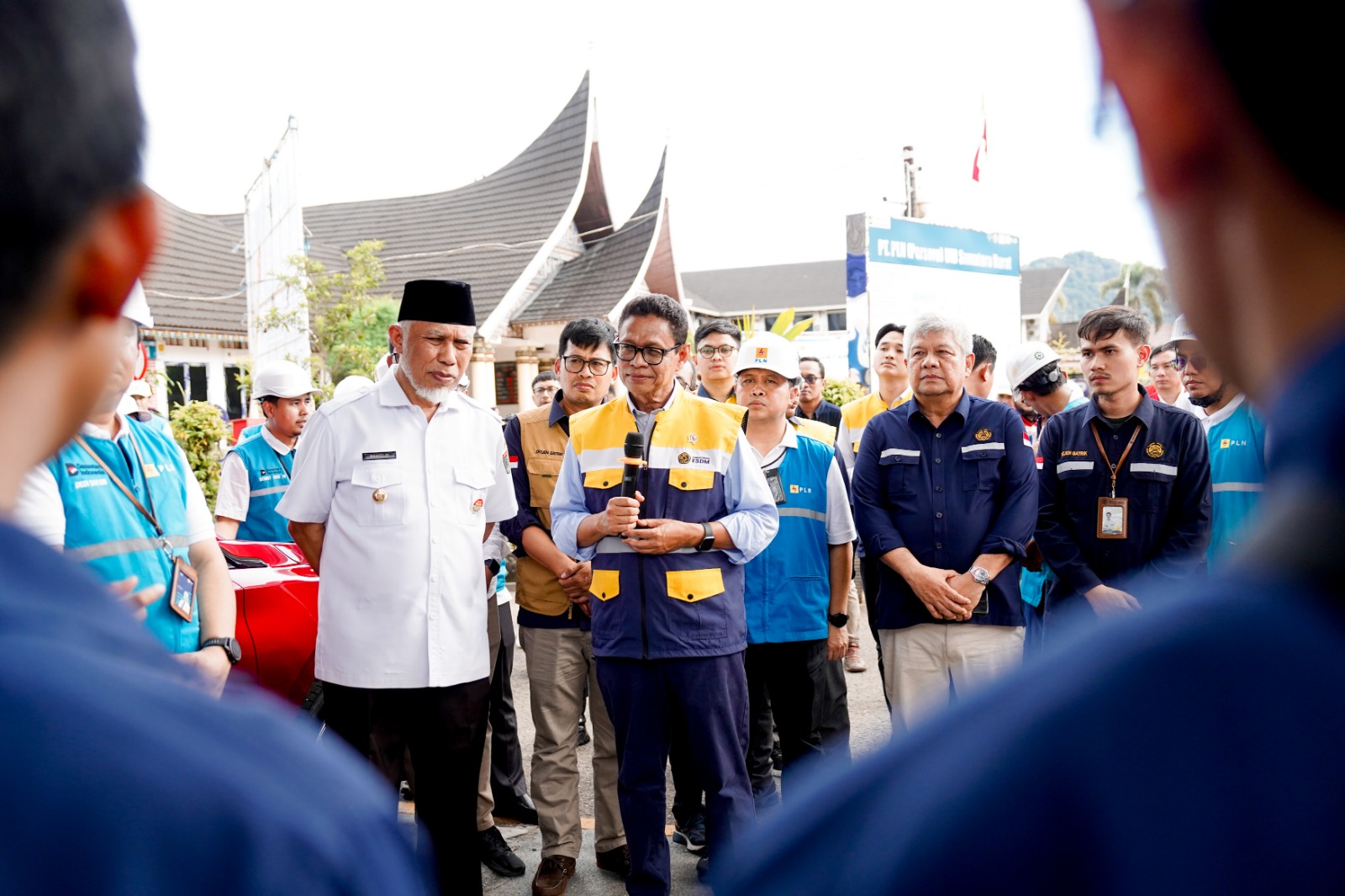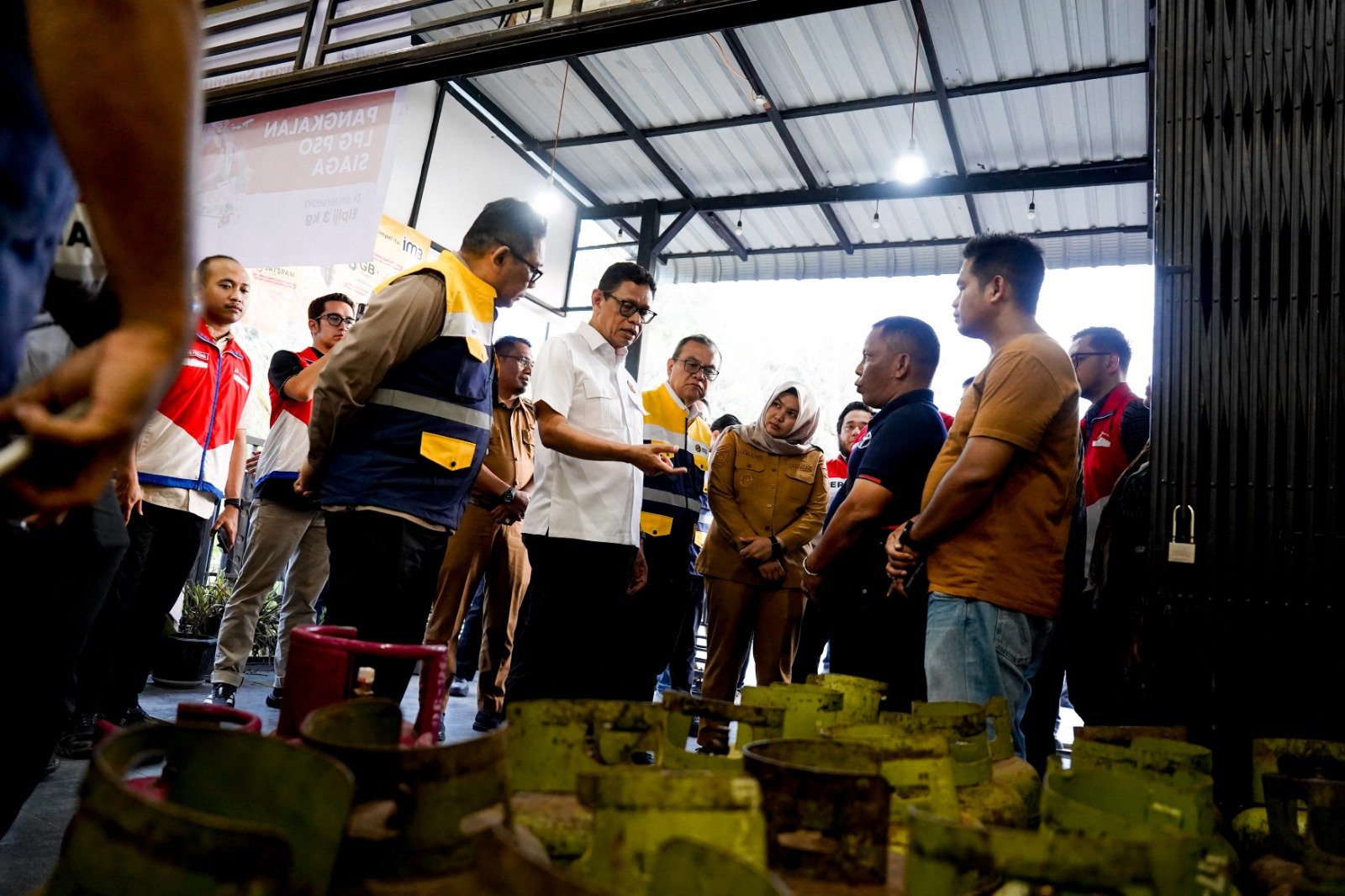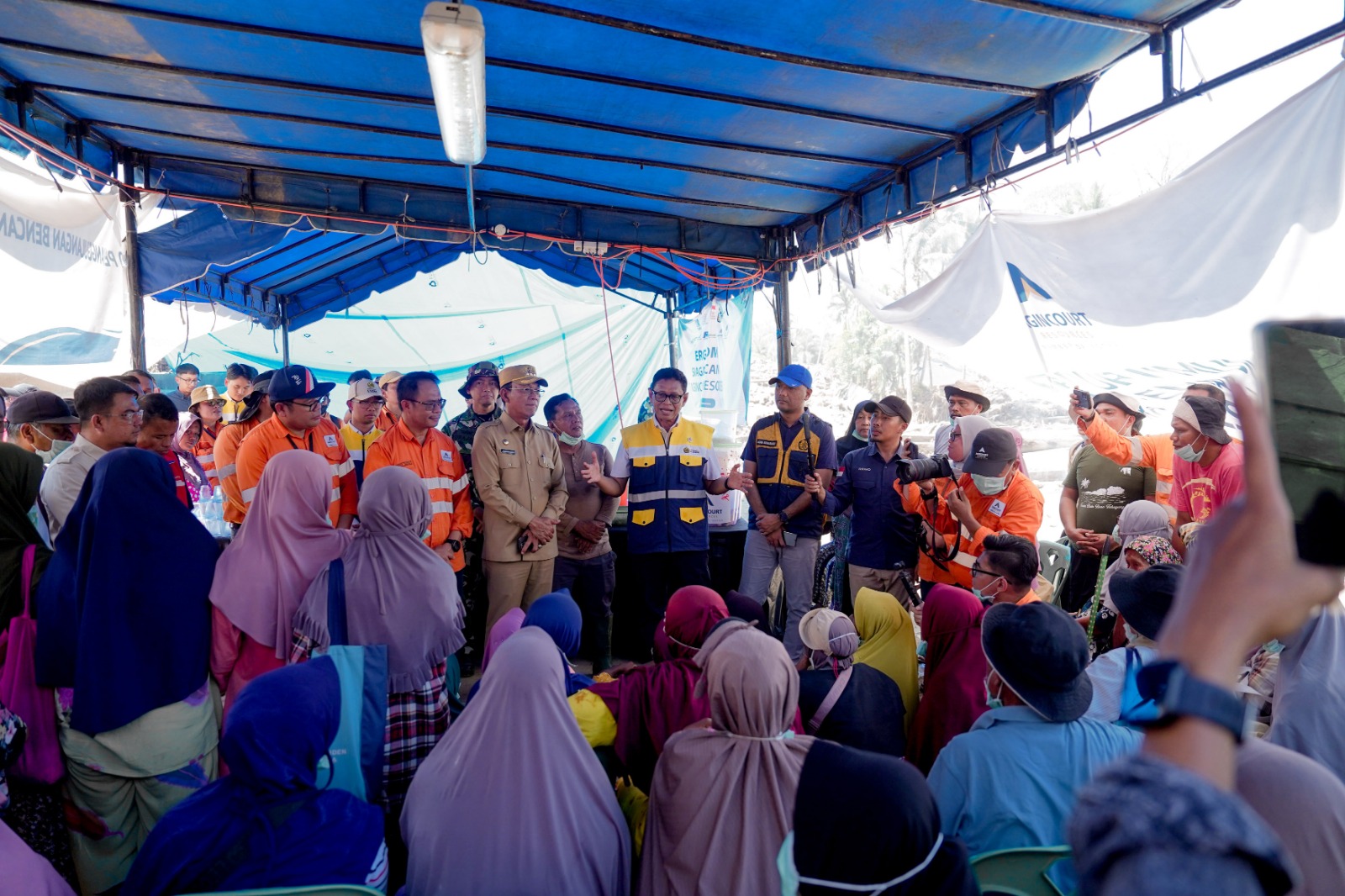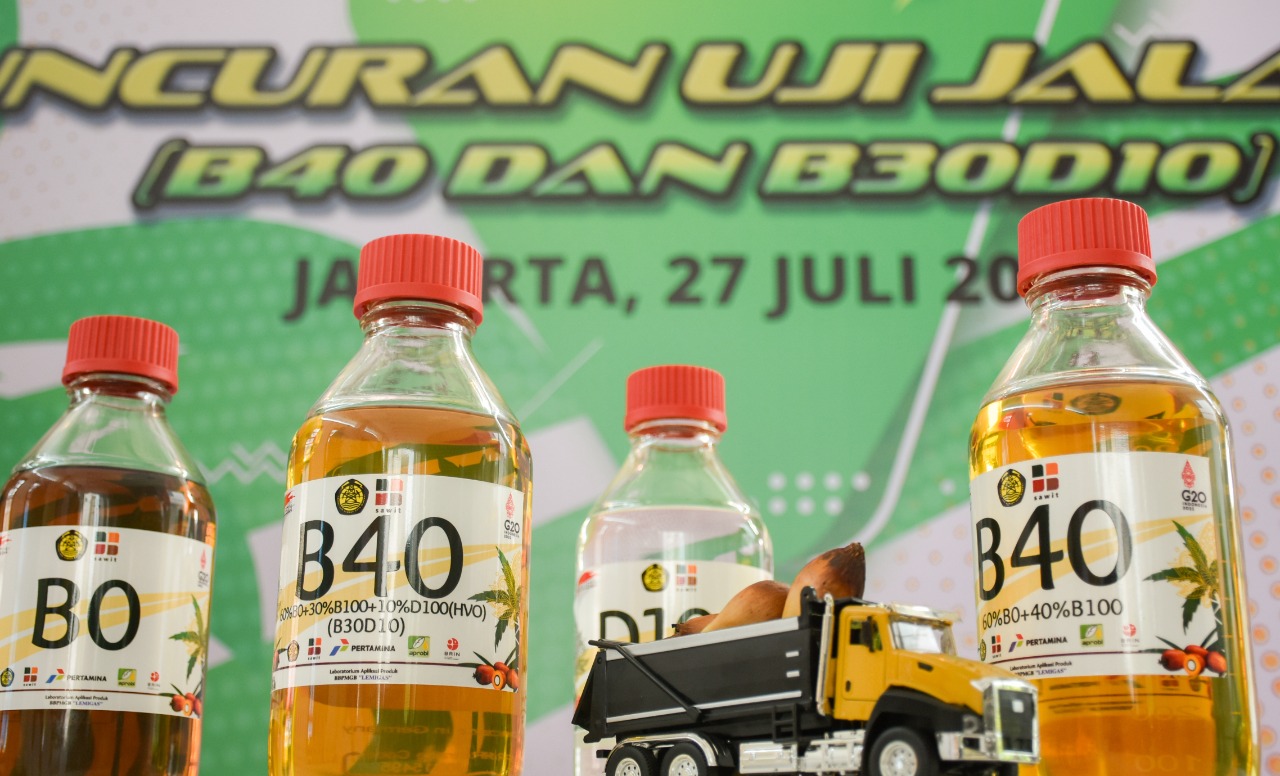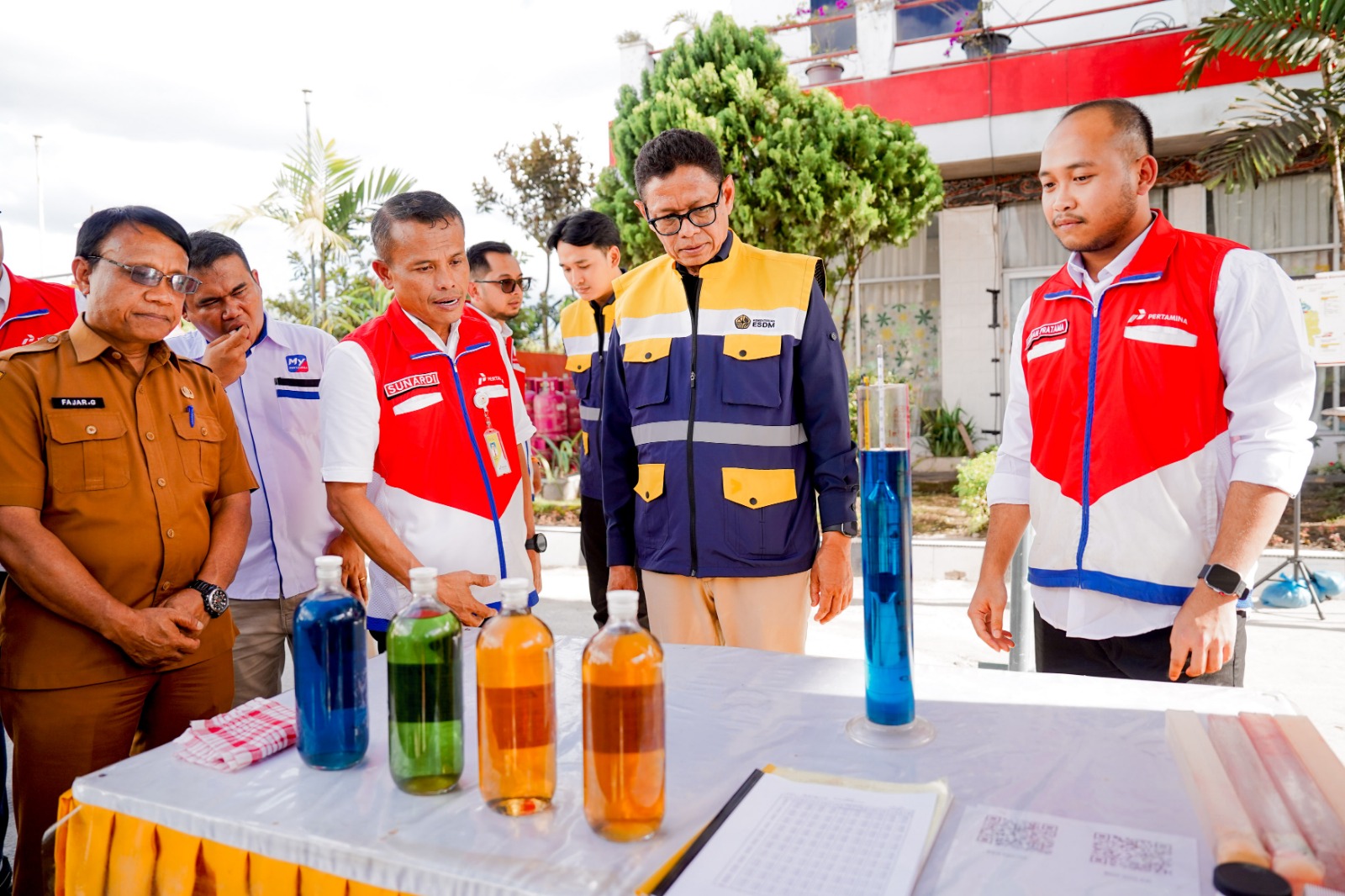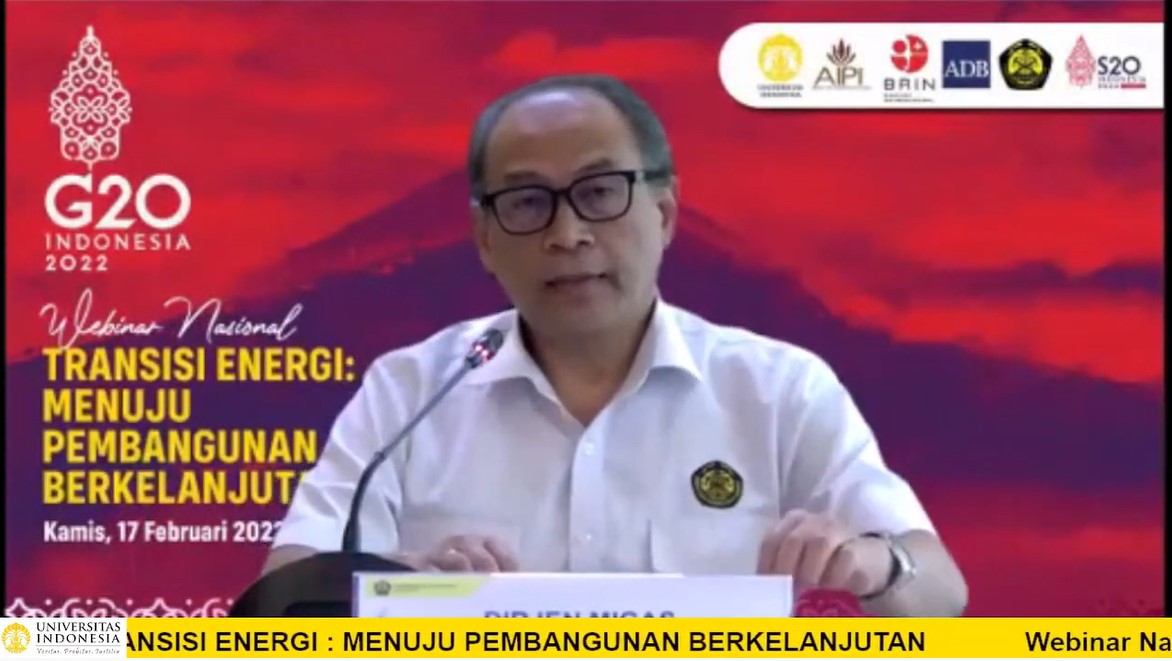
Energy Ministry Eyes CCS/CCUS Cooperation in Oil and Gas Fields
MINISTRY OF ENERGY AND MINERAL RESOURCES
THE REPUBLIC OF INDONESIA
PRESS RELEASE
NUMBER: 78.Pers/04/SJI/2022
Date: 18 February 2022
Energy Ministry Eyes CCS/CCUS Cooperation in Oil and Gas Fields
The development of Carbon Capture, Utilization, and Storage (CCS/CCUS) technology has encouraged the Ministry of Energy and Mineral Resources (EMR) to use it for expanding cooperation potential in order to mitigate climate change and reduce carbon emissions.
"The cooperation scheme to be developed is quite extensive, not only about storing CO2 in oil and gas fields but also hub-clustering, so the scheme can accommodate various forms of cooperation and businesses in handling climate change," said Director General of Oil and Gas of the Ministry of EMR, Tutuka Ariadji, in a webinar titled 'Energy Transition to Sustainable Development' held on Thursday (17/2).
Tutuka spelt out three potential CCS/CCUS cooperation. First, the development of a regional hub & CO2 clustering management where a 'hub' of CO2 emission sources is connected to several 'clustered' CO2 absorbers in a region.
Second, the development of CO2 utilization to produce methanol. Finally, the development of blue hydrogen and blue ammonia + CCS. "We call this 'low hydrogen'," added Tutuka.
The cooperation on CCS/CCUS development in the oil and gas business is the content of a CCS/CCUS regulation currently being finalized. The regulation consists of technical, business scenario, legal, and economic aspects.
The technical aspect covers capture, transportation, injection, storage and monitoring, measurement, reporting and verification. Additionally, it includes goal setting and site specifics based on reference standards and good engineering practices.
The business scenario sets out that based on the production-sharing contracts for oil and gas blocks, CO2 emissions may come from not only oil and gas activities but also other industries. The last type of emissions can be settled via B-to-B transactions with oil and gas contractors.
The legal aspect clarifies issues such as CCS/CCUS proposals as part of the plan of development (PoD) of a field, transfer of responsibility, etc.
Finally, economic aspect regulates, among others, the potential for third party funding, the potential for monetization of carbon credits based on Presidential Regulation Number 98 of 2021, as well as the separation of carbon credits in production sharing contracts.
CCS/CCUS technology has been developed in a number of oil and gas fields, such as in Gundih, Sukowati, Sakakemang, and East Kalimantan to the CO2-EGR project to be carried out in Tangguh Field. These projects can store approximately 43 million MT of CO2. "The industry is quite enthusiastic about this project," said Tutuka.
For the record, the total CO2 emissions from the oil and gas supply sector are estimated at 1.1 Giga MT of CO2. If all emissions are injected into depleted oil and gas reservoirs, only 52.6% of the capacity is used. "The approach of storing CO2 underground will become an enabler that can increase oil and gas production, so we are quite happy because it (maintains) national storage capacity," concluded Tutuka. (IY)
Head of Bureau of Communication, Public Information Services, and Cooperation
Agung
Pribadi (08112213555)
Share This!

